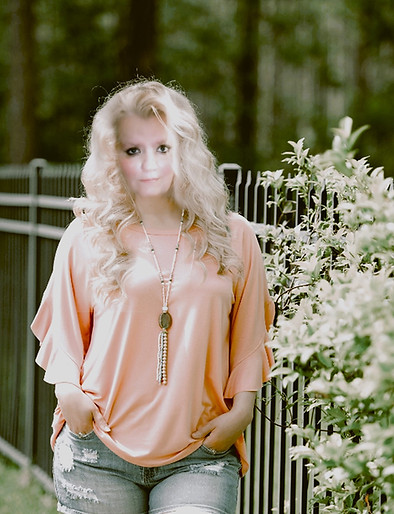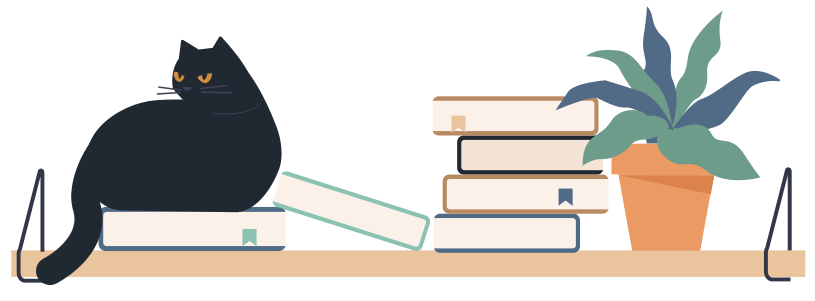I Know Who I Am, Who Are You?
It’s a strange thing, growing up in a place that feels like a cage. For me, that place was Jellico. I was a ghost haunting its streets—unseen, unheard, and perfectly content in my solitude. People weren't my thing; I kept them at arm's length, not because I was above them, but because I felt so far below.
You see, I was born with a burden no child should carry: the belief that I was unlovable. My mother, the woman who gave me life, made sure of it. She planted the seed of doubt in my mind and watered it with every bitter word. “Nobody loves you,” she’d say. She didn’t even spare herself from the condemnation. “Hell, not even I love you.”
And I believed her. How could I not? A mother's words are a child's reality, and mine was a desolate one, built on the foundation that I was undeserving of love. It was a truth I wore like a second skin, a heavy shroud that made me invisible to the world and to myself.
I wasn't the kind of girl who turned heads—I was too plain, too poor, too fat, too shy. That's a toxic recipe in a small town, a fast track to being invisible. And in Jellico, I was invisible, left out of every party, every clique, every whispered secret. The loneliness didn't sting as much as you'd think; I'd learned to live with it.
Sometimes, in school, I’d act out in class. Not because I was a troublemaker, but because I was desperate. I just wanted one person to see me. I wanted one teacher to look me in the eye and ask, "What is wrong with you?" I had a story to tell, a whole lifetime of pain bottled up inside me, but no one ever asked. So, I kept it all to myself—the words I never said, the tears I never shed, and the bruises I hid under long sleeves and thick foundation. Nobody looked close enough to notice, and I was too good at pretending they weren't there.
I tried to run away a few times. I never went far—just around the corner, where I could be alone with my thoughts until someone came and dragged me back home. Even in those moments, as a search party of one, nobody ever stopped to ask me why. I had a whole story of pain and neglect to share, but the words were locked inside me, and the key was a question no one bothered to ask.
I got used to the accusations—lies about things I'd never done, words I'd never said. It became a routine. People would point their fingers, and I'd just stand there, silent. There was no point in defending myself; a plea for innocence would have fallen on deaf ears. My truth didn't matter, not to them and, eventually, not to me.
I sought refuge in the shadows, losing myself in things others feared. I consumed books on the paranormal, on the stark contrasts of Heaven and Hell, on the forbidden arts of witchcraft and spells. I was obsessed with the ideas of revenge and karma, of balance and retribution.
My mind became my sanctuary. It was a dark and twisted place, but it was mine, and it was safe. And in the very things that were meant to frighten me, in those abnormal depths, I finally found myself.
I started writing stories—tales so dark and twisted they would have made anyone who read them question my sanity. I didn't care about math or history; those subjects were as foreign to me as a different planet. While the teacher droned on, I was in the back of the classroom, lost in my notebook, spilling my inner world onto the pages. The only class that I ever took seriously was computers and typing. I knew those two subjects were the foundation of everything I intended to do.
I married young, in a blur of a ceremony that felt more like a rescue than a wedding. People whispered I was running from my mother, or that I was after his money. They were wrong on both counts. I wasn't running from anything; I was running toward someone.
In his eyes, I saw myself not as the unloved girl from Jellico, but as someone special, someone worthy. He saw my whole world, and in turn, he became mine. Thirty years later, he's still my best friend, the one I love more than anyone.
Not long after, our first son was born. I always joke that we grew up together, and in a way, it's true. That boy taught me how to be a mother, how to be strong, and how to love unconditionally. He raised me just as much as I raised him.
Four years later, our second son arrived. My little world was complete—I had everything I'd ever wanted. But my mother still found a way to poison my happiness. She was a master of emotional torture, a surgeon of the soul, and she never missed a chance to cut me down.
It's a strange kind of sadness, how the best years of my life were still shadowed by anxiety and depression. Every loud noise—a sudden bang, a ringing phone, a knock at the door—would send me into a panic. The depression almost took me; I'd lie awake at night, my mind a storm of escape plans. But it was the thought of those two boys, my sons, that kept me breathing. They were my anchor in the storm, the reason I fought to stay.
My in-laws weren't much warmer. I tried to fit in, to break through their cold, hard walls, but nothing worked. I never understood why. Maybe it was because I married the youngest, the one they weren't ready to let go of. Or maybe I was just right all along—an unlovable human being.
That's when I returned to writing, losing myself in worlds that were more real to me than my own. My notebooks became my refuge, filled with stories no one would ever see. I had to protect my children, to shield them from the judgment and ridicule that would surely follow. In a town like Jellico, a writer—especially one like me—would be torn apart, and I couldn't bear the thought of that tearing my sons down with me.
In the fall of 2000, I took a chance and quietly submitted a story to Haunted South Magazine. I didn't tell a soul. A few weeks later, a letter arrived. My story had been accepted—they loved it and wanted more. My writing was good.
I ran to my dad, the letter clutched in my hand, my heart pounding with hope. He just laughed and said it was a hoax. My mother, of course, offered no congratulations. Only a smirk, another cut, another beat-down to my soul.
When the story was finally published, I was accused of being a witch; someone dabbling in the occult. It was a new kind of rejection, but this time, it was a little different. Being the town witch wasn't so bad. It was a kind of power, a cloak I could finally choose to wear.
By the time my kids were grown, I knew it was finally my time. Time to stop hiding my writing, to embrace my reputation as the town's "witchy girl," and to finally do what I was good at.
I quietly got my GED, took every online writing course I could afford, and soaked up knowledge like a sponge. I built a resume that was more than just a list of jobs—it was a testament to my grit. I was no longer the invisible girl from Jellico. I was a force to be reckoned with, and I was just getting started.
Then came a strange email—not from some online magazine, but from a real publishing company. They wanted to talk to me. A few phone calls, letters and video chats later, I was on my way to Blue Springs, Missouri, signing a contract to write for a legitimate, accredited publishing company.
On June 1st, 2021, my first book The Wendigo Possession was released on Amazon and Kindle Store, selling over 100 copies on its first day.
I DONE IT!
I now have nine published books, three of them bestsellers. Two of my titles sit on the shelves of the Skylight Books in Los Angeles, it feels like a dream. I've won awards, earned a steady income, and my name is all over the internet. I'm proud of the writer I've become, and even more proud of the woman who fought to get here.
I refused to be held down. I built the life I always wanted for myself, quietly, behind closed doors, while everyone laughed and said I couldn't do it. But I did it.
Local support has been slow to come, and I'm still the town witch. But I don't mind. I know who I am now. I'm Rebecca Ivey from Jellico, Tennessee—a wife, a mother, and a bestselling author who will never be told she isn't good enough ever again.
I owe a debt of gratitude to the people who left me out, who laughed, and who said I wasn't good enough. To my mother, for a lifetime of pain and confusion, and to everyone who called my dreams unrealistic—a fairy tale I would never achieve, and to every teacher who frowned at me.
You were the ones who made me fight; you were the fuel to my fire.
Every single time you said I couldn't do it, I fought even harder!
Every negative word built a foundation beneath me that can never be broken!
And for that, I thank you.
Today I know exactly who I am.....
Who are you?












.jpg)